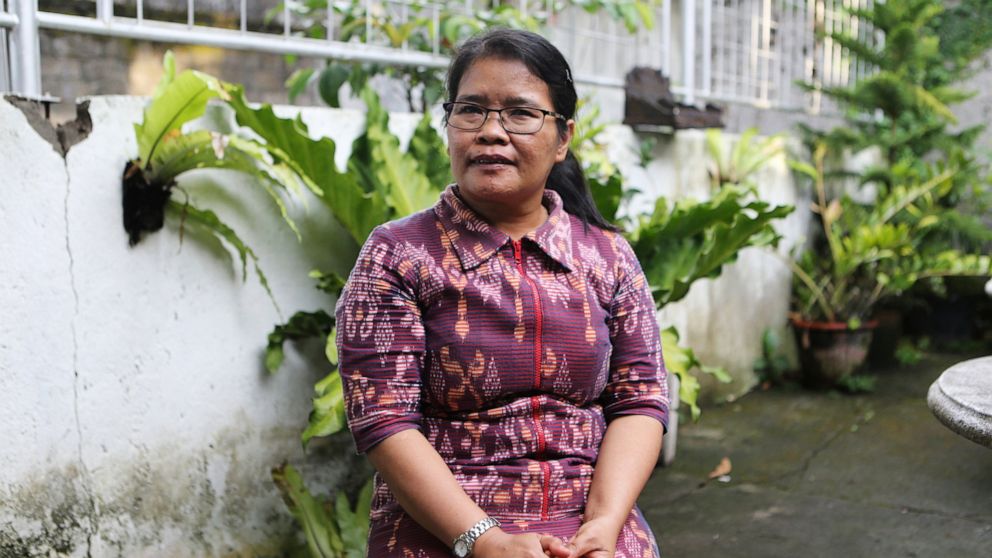JAKARTA, Indonesia — Thiolina Marpaung still panics anytime she smells smoke, immediately recalling the bomb explosion that upended her life 20 years ago.
Marpaung, now 48, was in a car with her colleagues on the Indonesian resort island of Bali in 2002 when the blast shook their vehicle from behind. Marpaung was temporarily blinded as shards of glass pierced her eyes. She remembers calling out for help and someone bringing her to the sidewalk, before an ambulance raced her to a hospital with other victims.
“I was traumatized by the sound of ambulance sirens,” Marpaung said.
She is one of dozens of Indonesian survivors who were outside of Sari Club on the night of October 12, 2002, when a car bombing there and the nearly simultaneous suicide bombing at nearby Paddy’s Pub killed 202 people, mostly foreign tourists, including 88 Australians and seven Americans.
Marpaung later had surgery in Australia to remove the glass from her eyes, but the pain still bothers her and requires treatment to this day. At the urging of her psychologist, she has thrown away and burned photographs, news articles, clothing and other reminders of that day. She even tossed the shards of glass that were removed from her eyes onto Kuta Beach in Bali, not far from the attack site.
“That’s made me feel better until now,” she said.
Two decades after the Bali bombings, counterterrorism efforts in the world’s most populous Muslim country remain highly active. More than 2,300 people have been arrested on terrorism charges, according to data from the Center for Radicalism and Deradicalization Studies, since a national counterterrorism unit, known as Densus 88, was established in the wake of the attacks.
In 2020, 228 people were arrested on terrorism charges. The number rose to 370 last year, underscoring authorities’ commitment to pursue suspects even as the number of terrorist attacks in Indonesia has fallen.
But the aggressive police work has also prompted concerns about potential overreach.
“The government’s recent move towards expanding the definition of the threat of terrorism by going after non-violent, ideologically conservative organizations can undermine the legitimacy of its counterterrorism efforts if the public begins to see anti-terrorism as something of a political thing rather than a law enforcement effort,” said Sana Jaffrey, director of the Institute for Policy Analysis of Conflict in Jakarta.
The pursuit of suspects related to the Bali bombings has also…
Click Here to Read the Full Original Article at ABC News: International…

